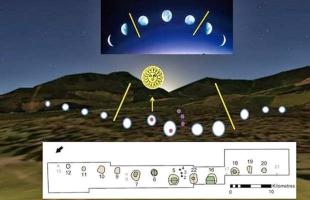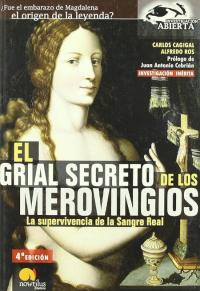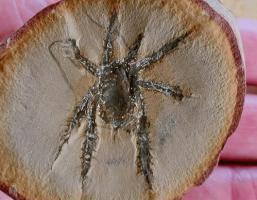Copy Link
Add to Bookmark
Report
Cider Digest #0946

From: cider-request@talisman.com
Errors-To: cider-errors@talisman.com
Reply-To: cider@talisman.com
To: cider-list@talisman.com
Subject: Cider Digest #946, 30 January 2002
Cider Digest #946 30 January 2002
Forum for Discussion of Cider Issues
Dick Dunn, Digest Janitor
Contents:
Re: Cider Digest #945, 23 January 2002 (Mark)
cider failure (mike tomlinson)
Re: That cider tasting I mentioned (Terence L Bradshaw)
malodorous cider (David Daly)
looking for a good press ("Judson Carleton")
Cider and (freeze) distillation (David Bourgeois)
Send ONLY articles for the digest to cider@talisman.com.
Use cider-request@talisman.com for subscribe/unsubscribe/admin requests.
When subscribing, please include your name and a good address in the
message body unless you're sure your mailer generates them.
Archives of the Digest are available at www.talisman.com/cider
----------------------------------------------------------------------
Subject: Re: Cider Digest #945, 23 January 2002
From: Mark <scaffnet@yahoo.com>
Date: Thu, 24 Jan 2002 06:16:44 -0800 (PST)
>
> >but until then, allow me to suggest to any
> cider makers out there with
> >commercial aspirations that a bone-dry, super
> tannic, classic English cider
> >may not be the product to offer the American
> palate, even one experienced
> >with cider.
>
> This is interesting because after tasting a
> cider brought back to the US
> from England I experienced just such a
> beverage....dry....tannic...acidic......in my
> opinionl, it was to die
> for. I've tried the commercial alco-pop ciders
> here in the US and a few
> homemade ciders but nothing compared to this.
> I'd venture a guess that if
> I could really learn to make a cider this good
> my fermeters and cellar
> would look much different than they currently
> do.
Try Farnum Hill Ciders. I had some at a tasting
last fall, right after a very syrupy and sweet
french cider. The dryness obliterated any
molecule of sweetness lingering on my palate.
They were quite remarkable. Made in America.
And my palate survived fine, thank you!
http://www.farnumhillciders.com/
------------------------------
Subject: cider failure
From: mike tomlinson <tugger@netreach.net>
Date: Thu, 24 Jan 2002 06:45:22 -0800
Pasteurized juice
I, unfortunately, had to make my last batch of hard cider here in
California from pasteurized store bought bottled "cider" and it failed
to generate any noticable alcohol levels.
I used a bottled mix called Santa Cruz, added a pack of the standard red
star yeast that I have always used, added the same amont of white cane
sugar and waited the appropriate time (several months) until the visible
fermentation stopped. I assumed everything worked until I sampled it and
found no alcohol effect. Upon testing it I got a level of less than 2%
alcohol. As best as I can determine the only difference in my process
from how I make it in the east is the basic juice- a big difference -
for my Pennsylvania cider usually comes in at +/-15%.
I have read mixed opinions on whether or not you can use pasteurized
juice but from my view you cannot. I'd appreciate any knowledge anyone
can share on this.
Thanks
Mike Tomlinson
------------------------------
Subject: Re: That cider tasting I mentioned
From: Terence L Bradshaw <madshaw@innevi.com>
Date: Thu, 24 Jan 2002 11:42:45 -0500
I should apologize for throwing out this little tidbit and not following up
on it quickly. It looks like it may be awhile before I get the full report
pulled together, so I'll give a little gist of it for now.
A cider tasting was held at the home of my area's primary custom juice
squeezer. Given that this mill is very homemade and is not FDA inspected
(although he does not sell juice, and only accepts donations for his
squeezing service), I will not name him. The tasting group consisted of
ten people with varying experience with ciders: A couple who makes cider
commercially in the area (Flag Hill Farm cider, in Vershire, VT), myself
(about 400 gallons of cider under my belt over the years) and my wife, the
miller's son and his girlfriend (she from Brooklyn with little experience
with cider), the miller's wife, a local home cidermaking couple, and
another couple that has only tried other people's ciders.
Twenty cider were offered and ranged from several homemade batches (two
versions of mine, a New England Barrel style and a true English tannic
style; probably four others from people who squeeze at the mill) and
several commercial batches. Commercial ciders included several from West
County Winery in Colrain, MA (http://www.westcountycider.com/), a couple
from Poverty Lane Orchards / Farnum Hill Cidery in Lebanon, NH
(http://www.farnumhillciders.com/), a sweet "Cider Wine" from Putney
Mountain Winery, Putney, VT; a "Country Bumpkin Scrumpy" from somewhere in
the Somerset region of England (real cartoonish label), Cider "Etienne
Dupont" 2000 from Normandy, France
(http://www.calvados-dupont.com/Pages_anglaises/welcomeenglish.htm), Burrow
Hill Kinston Black varietal from Somerset, (http://www.ciderbrandy.co.uk/),
and two Flag Hill Farm ciders. Ciders were divided into five categories of
four ciders each, grouping ciders so that each category was roughly similar
and ensuring that a mix of homemade and commercial ciders were in each
group. Categories were roughly selected as such:
1. Still, dry, American style
2. Still, dry, tannic English style
3. Still, semi-dry
4. Sparkling, dry
5. Sparkling, semi-dry-sweet
Ciders were poured by non-judging pourers and offered blind (i.e. in cups
only with no identification of their origin). All four ciders in each
category were given to the tasters at once and the tasters evaluated
subjectively. The ciders were then ranked 1-4 within the categories and
finally given a 1-10 subjective rating. The cider with the highest number
of #1 rankings then moved to the final tasting in which the top 5 ciders
were pitted against each other to come up with a best in show.
Now, I don't want to spoil everything, and I don't have the score sheets
with me, but we can say that the tannic, English-style ciders scored the
worst as a category, and in fact elicited quite a few strong negative
reactions. The "Country Bumpkin" scrumpy in particular was strongly
disliked by the group. Some of the ciders that scored well were made with
English cider fruit, but were judiciously blended with North American cider
fruit, esp. Golden and Roxbury Russett, and therfore did not have that
strong tannic taste. Ciders made with French apples, including the Dupont
from Normandy, were held in high esteem. Most of the ciders that advanced
had some residual sweetness, but none were cloyingly sweet as the Putney
Mountain "cider wine", which scored pretty poorly. And interestingly (and
a bit of a disappointment to our squeezer host) none of the ciders that
advanced was homemade.
Allow me to say in conclusion that West County Winery makes an excellent
product, as do many others, and that we in New England who want to travel
just a little bit are lucky to have their fine ciders made in our backyard.
Sometime I will get the full report together and offer it to the list.
Regards,
Terry B
At 11:27 PM 1/23/02 -0700, you wrote:
>From: Nathan Kanous <nlkanous@pharmacy.wisc.edu>
>Date: Sat, 19 Jan 2002 16:45:53 -0800
>
>In the last digest Terrance Bradshaw wrote:
>
> >but until then, allow me to suggest to any cider makers out there with
> >commercial aspirations that a bone-dry, super tannic, classic English cider
> >may not be the product to offer the American palate, even one experienced
> >with cider.
>
>This is interesting because after tasting a cider brought back to the US
>from England I experienced just such a
>beverage....dry....tannic...acidic......in my opinionl, it was to die
>for. I've tried the commercial alco-pop ciders here in the US and a few
>homemade ciders but nothing compared to this. I'd venture a guess that if
>I could really learn to make a cider this good my fermeters and cellar
>would look much different than they currently do.
>
>To each his own.
>nathan in madison, wi
====================================================================
Terence Bradshaw
Pomona Tree Fruit Service
93 Stowe St
Waterbury, VT 05676
(802)244-0953
madshaw@innevi.com
The views represented by me are mine and mine only................
------------------------------
Subject: malodorous cider
From: David Daly <great_pumpkin74@yahoo.com>
Date: Mon, 28 Jan 2002 10:03:16 -0800 (PST)
Hello everyone,
Hoping to get your advice on a little problem I've
been having. I started a batch of cider (5 gallons of
an unpasteurized blend from a local orchard) back in
September, dosing it with 100ppm SO2 (it's possible
that one extra campden tablet found its way into the
carboy) and pitching a sweet mead yeast starter (1
gallon!)The primary ferment took off in record time,
accompanied by an unholy stink which permeated my
closet for a week before dying down. I attributed
this to the sulfites, and I understood that the stink
would subside in time. Four months later, the stink
is diminished and localized to the carboy, but it
still makes the cider smell and taste awful. I fear
at this point that the smell may not be just due to
sulphur. Should the smell have dissipated by now if
just from sulfites? Will prolonged aging cure this
problem, or should I abandon all hope? Thanks for any
input.
- --Dave Daly
------------------------------
Subject: looking for a good press
From: "Judson Carleton" <jhcarleton@theofficenet.com>
Date: Tue, 29 Jan 2002 21:33:25 -0800
Hello everyone,
I am looking for a good cider press or plans, if anyone has one, to
press a moderate amount of cider (1000 gallons a year or so). My family
used to own the Bear Creek Nursery, which we have since sold, but I
intend on starting it again in the next year or so with a little
different vision. In the mean time I have 3 acres of my own, plus some
contract acreage that I am going to be planting to cider varieties with
the hopes of making a go of the cider business. So, any information,
receipts or pitfalls to stay away from are welcome. I have pressed a
some cider from an orchard of Newtowns, Idareds, Red Delicious,
Jonathan, etc. It was fun and I had a lot of interest for it. I would
appreciate any wisdom from those of you who are veterans at this.
Thank you all and I look forward being a member/subsriber!
Judson Carleton
------------------------------
Subject: Cider and (freeze) distillation
From: David Bourgeois <david@muelec.fpms.ac.be>
Date: Wed, 30 Jan 2002 16:16:30 +0100
I remeber some discussions about the production of brandy by freeze
distillation.
Ian A. Merwin noted that "it's worth noting that the heads and tails of cider
distillation contain some relatively unsavory and toxic compounds".
So, these toxic substances (methanol,...) are present in the cider?
Is it the dilution in the cider that makes them allowed to drink?
Can someone explain about this? I red the Annie Proulx and Lew Nichols' book
one year ago and don't remember any explanation of this.
Thanks,
David Bourgeois
------------------------------
End of Cider Digest #946
*************************


























